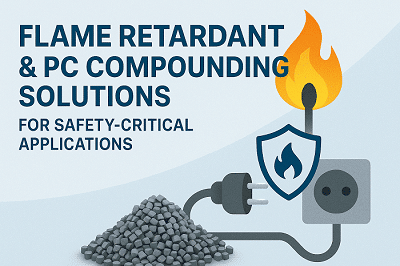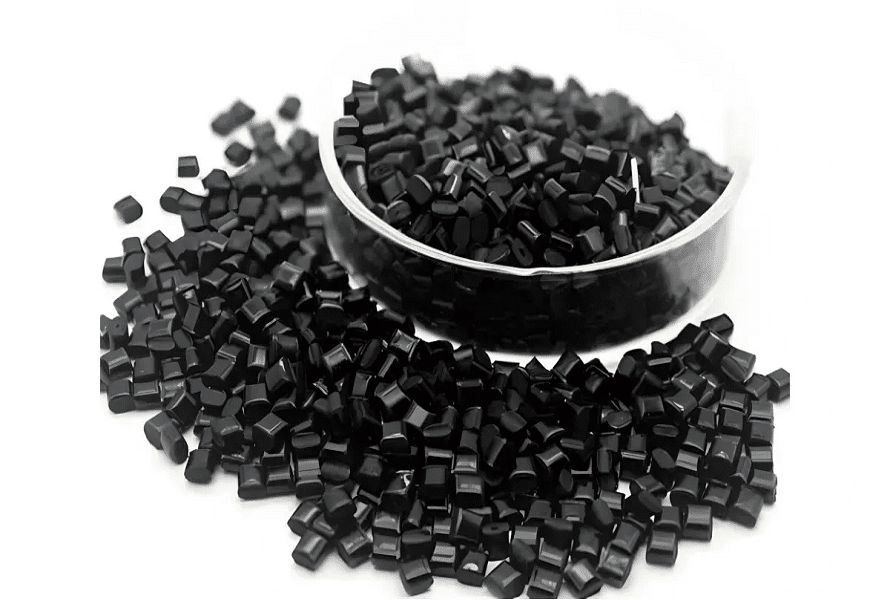Sustainability has become one of the most pressing issues in industries around the world, and the masterbatch manufacturing sector is no exception. As the global demand for eco-friendly materials and processes rises, industries are increasingly being called to rethink their practices and minimize their environmental impact. In India, the polymer and masterbatch industries have embraced this challenge, and Indian manufacturers are leading the charge toward more sustainable practices.
In this blog, we will explore how Indian manufacturers are making significant strides in masterbatch production to contribute to a greener future. From eco-friendly materials to innovative recycling processes, India’s efforts in sustainable manufacturing are positioning the country as a global leader in the shift toward environmentally responsible production.
Understanding the Role of Masterbatch in the Polymer Industry
Before discussing sustainability in masterbatch manufacturing, it’s important to understand what masterbatch is and how it contributes to the polymer industry.
Masterbatch is a concentrated mixture of additives, pigments, and fillers that are incorporated into base polymer resins during the manufacturing process. This concentrated compound can modify the properties of plastics, such as color, durability, and performance characteristics. The production and use of masterbatch are essential for creating high-quality plastic products used in a wide range of industries, including packaging, automotive, construction, and textiles.
However, the plastics industry, including masterbatch manufacturing, has long faced criticism for its environmental impact, primarily due to the use of fossil fuels, non-biodegradable materials, and unsustainable production practices. The good news is that Indian manufacturers are taking significant steps toward transforming the industry and making it more eco-friendly.
The Rise of Sustainability in Indian Masterbatch Manufacturing
India’s masterbatch industry is increasingly focusing on sustainability, driven by both local regulations and the growing demand for environmentally responsible products in global markets. Let’s take a look at the key areas where Indian manufacturers are leading the charge toward sustainability.
1. Adoption of Biodegradable and Bio-Based Materials
One of the most significant trends in sustainable masterbatch manufacturing is the adoption of biodegradable and bio-based materials. Indian manufacturers are exploring alternatives to traditional petroleum-based polymers by incorporating renewable resources into their masterbatch formulations.
Bio-based polymers, such as polylactic acid (PLA) and polyhydroxyalkanoates (PHA), are being used in place of petroleum-derived plastics. These bio-based materials are derived from renewable sources like cornstarch, sugarcane, and agricultural waste, making them more sustainable and less harmful to the environment.
Indian companies are also focusing on developing biodegradable masterbatches that break down over time, reducing the accumulation of plastic waste in the environment. By creating products that decompose naturally, manufacturers are significantly decreasing the long-term environmental impact of their plastics.
2. Recycling and Reusing Plastics
Recycling is at the heart of sustainability in the plastics industry. India has made tremendous progress in developing advanced recycling technologies, and the masterbatch sector is no exception. Indian manufacturers are increasingly using recycled plastics (also known as rPET, recycled polyethylene terephthalate) as raw materials for producing masterbatches.
By utilizing recycled materials, Indian manufacturers are reducing the demand for virgin plastics, conserving natural resources, and decreasing plastic waste. The incorporation of recycled content into masterbatch production not only helps lower the environmental footprint but also supports a circular economy, where materials are reused rather than disposed of.
Additionally, Indian companies are working to improve the quality of recycled plastics, ensuring that they can meet the same high standards as virgin materials. As technology improves, recycled plastics are becoming more viable for a wider range of applications, further driving sustainability in the masterbatch sector.
3. Reducing Energy Consumption and Carbon Footprint
Sustainable manufacturing doesn’t just involve using eco-friendly materials; it also includes improving energy efficiency and reducing carbon emissions. Indian masterbatch manufacturers are investing in energy-efficient production technologies that reduce the energy required during the manufacturing process.
By using advanced machinery, optimizing production processes, and adopting renewable energy sources such as solar or wind power, manufacturers are reducing their overall energy consumption and lowering their carbon footprint. These efforts are contributing to the country’s larger goal of achieving climate targets set by the government and international organizations.
For example, some companies are using waste heat recovery systems, which capture and reuse excess heat produced during manufacturing, further reducing energy consumption and waste. These innovations are helping the Indian masterbatch industry transition toward more sustainable, low-carbon operations.
4. Use of Non-Toxic and Safe Additives
Another critical aspect of sustainability in masterbatch manufacturing is the use of non-toxic, safe additives. Traditional masterbatches often include additives that are harmful to both the environment and human health. However, Indian manufacturers are increasingly turning to non-toxic and safe additives that comply with global safety standards.
These non-toxic additives do not leach harmful chemicals into the environment and do not pose health risks to consumers or workers. By switching to safer alternatives, Indian manufacturers are ensuring that their products are more environmentally responsible and comply with increasingly stringent regulations in international markets.
Additionally, these safe additives are compatible with recycling processes, meaning that products made from these sustainable masterbatches can be easily recycled without releasing harmful substances.
5. Innovations in Sustainable Packaging
Sustainable packaging is one of the fastest-growing areas in the global plastics industry. Indian masterbatch manufacturers are responding to this trend by developing packaging solutions that are not only functional but also eco-friendly.
The development of sustainable packaging includes innovations such as reduced plastic usage, the use of biodegradable plastics, and the creation of masterbatches that enhance the recyclability of plastic packaging. By developing these solutions, Indian manufacturers are helping brands across the world reduce their packaging waste and meet sustainability goals.
For example, India has become a leader in the development of recyclable and compostable packaging solutions, with several manufacturers producing packaging materials that can break down naturally, reducing the environmental impact of single-use plastics.
The Role of Government Regulations and Industry Initiatives
In addition to the efforts of individual companies, India’s government has been instrumental in driving the shift toward sustainable manufacturing practices in the masterbatch industry. Various regulations and policies aimed at reducing plastic waste and promoting the use of eco-friendly materials are helping to shape the future of the industry.
The Indian government’s initiatives, such as the Plastic Waste Management Rules, are encouraging manufacturers to invest in sustainable technologies and adopt green practices. These regulations are not only reducing plastic waste but also pushing manufacturers to innovate and develop environmentally responsible products.
Industry associations like the Compound and Masterbatch Manufacturer Association of India (CMMAI) are also playing a key role in driving sustainability in the sector by promoting awareness and encouraging best practices among members.
Conclusion: Leading the Way Toward a Greener Future
India’s masterbatch manufacturers are making significant strides toward sustainability, and their efforts are helping to shape a greener future for the entire plastics industry. By focusing on biodegradable materials, recycling, energy efficiency, non-toxic additives, and sustainable packaging, Indian manufacturers are proving that eco-friendly practices and innovation can go hand in hand.
As global demand for sustainable products continues to rise, India’s commitment to sustainability will be essential in meeting these needs. Through continued innovation, collaboration, and the implementation of eco-friendly practices, India is set to lead the charge in creating a more sustainable and environmentally responsible future for the masterbatch industry and beyond.



